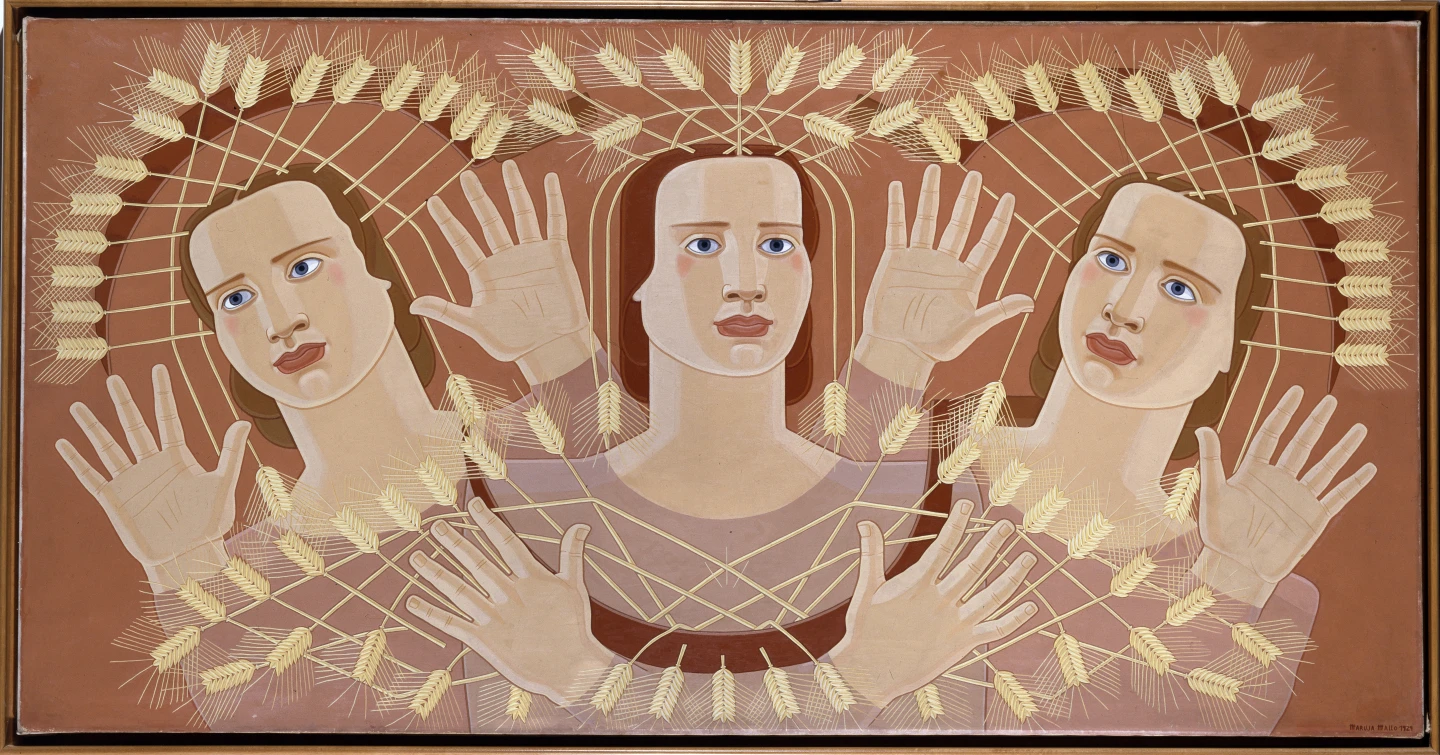Program
-
1. The Republic
April 8, 7:00 p.m. - 9:00 p.m.
Nouvel Building, Auditorium 200
Miguel Cabañas Bravo. Art policy in the 1930s: the activity of the Spanish Bureau of Fine ArtsApril 9, 7:00 p.m. - 9:00 p.m.
Nouvel Building, Auditorium 200
Idoia Murga Castro. The plastic and performing arts in the cultural networks of the Silver AgeApril 10, 7:00 p.m. - 9:00 p.m.
Museo Reina Sofía Collection. Room 206
Lidia Mateo Leivas: Divergent utopiasApril 11, 7:00 p.m. - 8:30 p.m.
Nouvel Building, Auditorium 200
Round table. Art and the Spanish Republic
Participants: Javier Pérez Segura (moderator), María Dolores Jiménez-Blanco, Idoia Murga Castro, and Miguel Cabañas Bravo -
2. The Civil War
April 15, 7:00 p.m. - 9:00 p.m.
Nouvel Building, Auditorium 200
Joan Robledo Palop. Perceptions of political violence, shown in art and image networksApril 16, 7:00 p.m. - 9:00 p.m.
Nouvel Building, Auditorium 200
Mónica Carabias Álvaro. "Fighting" photographersApril 17, 7:00 p.m. - 9:00 p.m.
Museo Reina Sofía Collection. Room 206
Joan Robledo Palop. Guernica in contextApril 18, 7:00 p.m. - 8:30 p.m.
Nouvel Building, Auditorium 200
Round table. Art and the Civil War
Participants: Jesús Carrillo (moderator), Isabel García García, Mónica Carabias Álvaro, and Joan Robledo Palop -
3. Exile
April 29, 7:00 p.m. - 9:00 p.m.
Nouvel Building, Auditorium 200
Miguel Cabañas Bravo. The artists of the 1939 diaspora and their arrival in MexicoApril 30, 7:00 p.m. - 9:00 p.m.
Nouvel Building, Auditorium 200
Idoia Murga Castro. New cartographies: interdisciplinarity in the scenarios of exileMay 7, 4:00 p.m. - 7:00 p.m.
Museo Reina Sofía Collection. Room 206
Carmen Gaitán Salinas. From the Civil War to exile: the various destinations, as seen through the Museo Reina Sofía CollectionMay 8, 7:00 p.m. - 8:30 p.m.
Nouvel Building, Auditorium 200
Round table. Art and exile
Participants: Dolores Fernández Martínez (moderator), Juan Ignacio del Cueto Ruiz Funes, Miguel Cabañas Bravo, and Idoia Murga Castro. -
4. The Franco dictatorship
May 9, 7:00 p.m. - 9:00 p.m.
Nouvel Building, Auditorium 200
Paula Barreiro López. Militant critique and avant-garde: between experimentation and engagementMay 10, 7:00 p.m. - 9:00 p.m.
Nouvel Building, Auditorium 200
Noemi de Haro García. Modernised dissidence, tolerated dissidence.May 13, 7:00 p.m. - 9:00 p.m.
Museo Reina Sofía Collection. Room 411
Paula Barreiro López. Art during the Franco dictatorshipMay 14, 7:00 p.m. - 8:30 p.m.
Nouvel Building, Auditorium 200
Round table. Art and the dictatorship
Participants: Julián Díaz Sánchez (moderator), José Luis de la Nuez, Paula Barreiro López, and Noemí de Haro García.






![Basel Abbas y Ruanne Abou-Rahme, At Those Terrifying Frontiers Where the Existence and Disappearance of People Fade Into Each Other [En esas fronteras aterradoras donde la existencia y la desaparición de personas se disuelven entre sí], 2019](https://recursos.museoreinasofia.es/styles/small_landscape/public/Colecci%C3%B3n/abbasabourahme.png.webp)